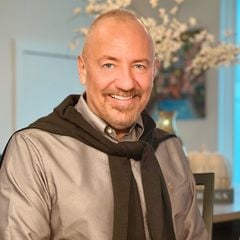Should I Sell My House or Rent it Out? Navigating This Major Decision
Deciding whether to sell your house or rent it out is a pivotal financial decision for homeowners. There are persuasive arguments on both sides, so it is crucial to thoroughly analyze the pros and cons of each option before making a commitment. By evaluating all aspects of the decision and how they fit your individual circumstances, you can determine if selling or renting makes the most sense for you.
Should I Sell My House or Rent it Out? Initially evaluating key facts and statistics
When embarking on deciding between selling or renting out your house, it is constructive to begin by reflecting on some vital facts and statistics. For one, renting provides ongoing income while selling nets you a one-time lump sum. Additionally, it is essential to weigh factors like current housing market conditions, your financial goals, and personal situation. Compared to selling, renting may necessitate more property maintenance and management duties. Meanwhile, selling can promote closure if you are moving and allow for a fresh start elsewhere. Ultimately, you should emphasize individual priorities, long-range plans, and monetary considerations when deciding between these two paths.
To elaborate, statistical data shows that on average, rental income for homeowners ranges from 4-8% of their property’s value. Furthermore, approximately 62% of sellers make a profit within one year of listing their house. Over the last five years, demand for rental properties has also increased by 21%. Renters typically stay in a rented home for 3-5 years on average. Moreover, competitively priced rental homes often get leased within the first 30 days on the market.
Should I Sell My House or Rent it Out? Evaluating the key considerations of renting out your home
If renting out your home is on the table, several critical considerations should factor into your decision-making process.
Determining the profitability of renting
First and foremost, you must objectively assess if renting out your home will generate adequate positive cash flow or gradually become financially draining. To make this determination, tally up all the associated rental expenses then deduct them from your projected rental income and tax breaks for landlords.
Rental costs that must get factored in include your monthly mortgage principal and interest, home insurance premiums, taxes, HOA fees if applicable, property management fees if using a service, projected vacancies, real estate agent commissions if enlisting one, advertising for tenants, maintenance and repairs, along with other miscellaneous expenditures. On the flip side, aim to realistically estimate your monthly or annual rental income by researching current area rental rates through online listings or consulting an experienced local rental agent.
Carefully compare these figures to decide if expectations of strong positive monthly cash flow from renting seem realistic. If not, renting out your home may ultimately hurt you financially instead of helping.
Should I Sell My House or Rent it Out? Evaluating property management fees
If moving away, hiring a property management company can relieve the stress of overseeing your rental remotely. However, the fee for this convenient service, which commonly equals roughly 10 percent of monthly rent payments, will directly cut into your potential profits. Depending on your break-even analysis, this additional recurring expense could noticeably reduce your bottom line from renting. As a result, hiring one of the available local property management firms may not fit into your current budget if aiming to maximize rental income.
Should I Sell My House or Rent it Out? Assessing if you can handle landlord duties
Additionally, honestly assess if you can handle the commonly stressful burdens and responsibilities that come with being a long-distance landlord. Even with great tenants, nuisance issues like late rent, maintenance emergencies, and upkeep needs inevitably pop up. These force you to continually play the role of problem-solver from afar. This ongoing nuisance can quickly become draining rather than a smooth passive rental income stream. If the idea of fielding tenant calls at all hours regarding clogged plumbing or broken appliances already seems exhausting, selling may better align with your temperament.
Should I Sell My House or Rent it Out? Evaluating if you plan to return
Alternatively, if moving away temporarily, renting out your home allows you the flexibility to return and move back in someday. This spares you the financial burden and hassle of selling now then repurchasing in the future.
Should I Sell My House or Rent it Out? Weighing future home value projections
Importantly, the decision to sell now or hold and rent also largely depends on the property’s future valuation outlook. If located in a market expected to see significant home price appreciation in coming years, retaining ownership to capture more value down the road through renting in the interim may be the optimal move. Connect with a knowledgeable local real estate professional to tap into their market insight and get their take on where area property values are heading.
Should I Sell My House or Rent it Out? Accounting for taxes
Remember, while collecting consistent rental income may seem enticing, you must pay income tax on any profit. Nevertheless, all legitimate rental expenses, like property taxes, maintenance, management fees and more can get deducted to offset this tax liability. Consult a tax expert regarding claiming depreciation on the rental property to further minimize your tax burden. Just ensure to weigh the tax implications when deciding between selling and renting.
Should I Sell My House or Rent it Out? Evaluating personal preferences
For some homeowners, the decision between renting out or selling goes beyond strictly dollars and cents considerations. If always harboring an underlying interest in testing out rental property ownership, hanging onto your current home to try this on for size could make practical sense. Just ensure to thoroughly familiarize yourself with applicable rental statutes and regulations so this trial run goes smoothly.
Should I Sell My House or Rent it Out? Weighing major pros of selling your house instead of renting
While renting does offer certain financial and logistical perks in some situations, selling your house outright provides its own set of distinct advantages as well.
Gaining closure
For starters, offloading ownership obligations delivers a sense of closure if moving onto a new chapter elsewhere. Transferring the property title through a sale eliminates all the nitty-gritty hands-on work that comes with ongoing rental proprietor duties. Though selling any home still demands some effort, once closed you can walk away with your check in hand without lingering property burdens in your old locale interfering with your new lifestyle.
Eliminating monthly housing payments
Additionally, if currently still paying down a mortgage loan on the home, selling abolishes this monthly bill obligation. You can pocket the sale earnings then freely use funds towards other purposes like buying your next home.
Should I Sell My House or Rent it Out? Avoiding maintenance and upkeep
At the same time, parting ways with the house through a sale spares you from retaining responsibility for future maintenance, repairs and general upkeep demands. These unpredictable headaches and expenses fall onto the next owner. For retirees moving into rental housing, for instance, limiting these housing obligations could be ideal.
Cashing in before a shifting market
Furthermore, another upside of sale over renting relates to market timing. In some areas, indicators actually point towards housing values peaking then possibly dropping off down the line. By selling now at the top instead of holding onto the asset, you mitigate the risk of losing equity through a market dip. If reading the tea leaves, locking in top dollar through a sale before the tides turn could end up the most profitable move.
Capitalizing on tax exclusion perks
Timing is also essential to capitalize on current federal capital gains tax laws excluding a large portion of housing sale gains. For primary residences, up to $250,000 profit for single filers or $500,000 for married couples escapes taxation. Selling now cements your ability to pocket earnings tax-free before legislation potentially limiting this major money-saving exemption for homeowners changes.
Should I Sell My House or Rent it Out? Funding your next home
eyond favorable capital gains tax treatment, liquidating your current asset also supplies funds for a hefty down payment on your next dwelling. Compared to tying up equity through renting, selling unleashes Major cash to put towards another property purchase. For prospective buyers with less-than-stellar credit, leveraging house sale proceeds to make a sizable down payment could also improve mortgage eligibility odds and loan terms.
Dodging problematic tenants
Finally, some find comfort in entirely moving on through a sale simply to hand off the headaches and uncertainty that accompany relying on tenants. Nightmare accounts of tenants trashing homes or causing major damage understandably frighten some homeowners from going the rental route. For peace of mind, making a clean break by selling may ease lingering worries about strangers as temporary caretakers of your beloved abode.
The rent-to-own compromise
For homeowners stuck somewhere in the middle between feeling ready to permanently sever ties with their property yet not prepared to relinquish all control through a sale, rent-to-own arrangements bridge the gap. This creative win-win comprises aspects of both renting and selling. Homeowners initially lease out the property and collect rental income while still retaining ownership. Simultaneously, renters occupy the home as tenants while incrementally building equity and buying the home through installment payments structured much like a traditional mortgage. Typically the lease agreement converts to a sale once the predetermined purchase price gets satisfied through gradual rent credits and installments.
In most cases, a portion of the tenant’s rent gets specially earmarked and credited towards the ultimate buyout price of the property. This flexible combo approach allows homeowners unsure if fully letting go now is prudent to test the rental waters without completely relinquishing future ownership rights. If dissatisfied renting later on, you can always revert to selling traditionally or attempt locating another buyer willing to purchase through the pre-negotiated rent-to-own terms.
Should I Sell My House or Rent it Out? Reevaluating an initial decision to rent out your home
Although at first glace renting out your home instead of selling may seem like the perfect solution, many homeowners eventually come to regret this initial decision after unsuccessfully testing the rental owner waters. Oftentimes new landlords quickly discover that expected rental proceeds fail to match actual numbers or that the overall experience feels more draining than rewarding. When this reality sets in, you may start exploring offloading through a sale instead to exit the landlord business.
Yet despite deciding selling now makes sense, divesting of a tenant-occupied property can prove exceptionally challenging. Outsider buyers generally resist inheriting problematic tenants alongside their shiny new investment property purchase. Simultaneously tenants likely oppose cooperating with showings and other sale-facilitating demands they view as contrary to their rental rights.
Thankfully several strategic measures like offering cash for keys incentives to vacate, ensuring home condition exceeds norms before listing or even pursue selling through auction channels can help attract buyers to a tenanted listing while also protecting tenant rights. But anticipate an uphill negotiation battle ahead with this complex transaction scenario. Lean on an experienced real estate sales agent to promote cooperation between all parties.
Should I Sell My House or Rent it Out? The Bottom Line
When wavering over whether selling or renting your home best aligns with your need, thoroughly assess both options from financial and emotional angles before deciding. Create a comprehensive pros and cons list examining your profitability estimates, tax implications, lifestyle priorities and risk tolerance. Meet with a knowledgeable real estate or financial professional to also gain objective insight into current housing market conditions that could sway your verdict.
Without easy answers, carefully weigh all facets of your situation to determine the ideal course. And always remain open to reevaluating if initial assumptions fail to match reality once implementing your chosen rental or sales path.
If you are looking for a St Petersburg Realtor visit https://avalongrouptampabay.com/




